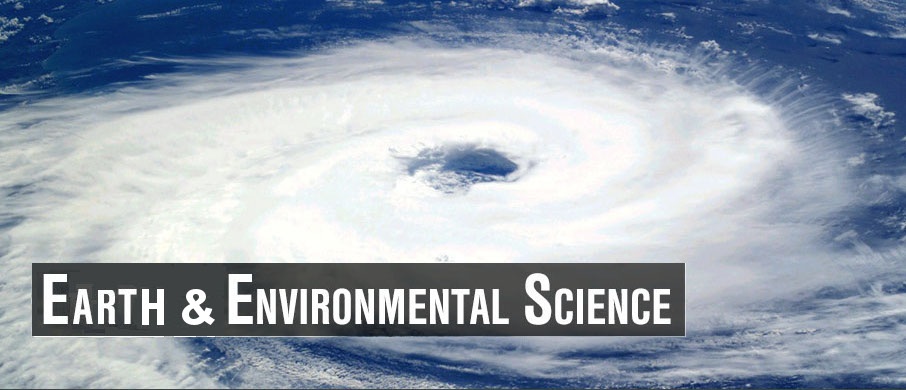
Why Earth & Environmental Sceince? Earth & Environmental science is a multi-disciplinary science that teaches us to protect and sustain our natural resources of land, water, air and vegetation. Strides made in industry, agriculture and technologies for improving human life quality has been made possible by relying on resources available in land, water and vegetation. These human or anthropogenic activities have often led to deterioration of the natural resources. Besides anthropogenic activities, natural hazards of earth quakes, land-slides, hurricane and floods pose threat to human life and the natural resource system.
There is an increasing awareness in the community and willingness to adopt measures to protect our environment from degrading effects of all forms of pollution. Driven by these concerns, the IISc Bachelor of Science (Research) Programme on Earth & Environmental Sciences provides an integrated and interdisciplinary approach to understand and mitigate hazards arising from anthropogenic and natural activities by focusing on key areas of environmental chemistry, earth sciences, environmental engineering, atmospheric sciences, and sustainable systems.
What does the programme offer? During the first three semesters, students will be taught a rich mix of fundamental courses in Physics, Chemistry, Mathematics, and Biology, as well as a basic foundation in the principles of Engineering. In addition, students will be exposed to several courses in humanities that will provide them with a better appreciation of science and its societal implications, as well as sharpen their skills in communicating science both to experts in their fields and to society at large. After successful completion of the first three semesters, students majoring in Earth & Environmental Science will be required to take a fixed number of core-courses in this Major. Students can then acquire additional expertise in special areas of their choice by crediting elective courses from among a wide range of special topics courses; additional elective courses in any of the other science/engineering disciplines could lead
to a minor specialization, provided the minimum credit requirements for doing so are met. Students majoring in Earth & Environmental Science will be taught salient topics in Environmental Chemistry, Earth Science, Atmospheric Science and Environmental Engineering. The Laboratory Courses are thoughtfully designed to help understand various concepts taught in the Bachelor of Science (Research) Programme, provide hands on experience with state of the art equipment and teach essential experimental techniques in earth & environmental management. The Earth & Environmental Science students will have opportunities to undertake research/practice oriented projects in the final semesters in an Earth & Environmental Science area of their choice.
What after a Bachelor of Science (Research) Programme in Earth & Envrionmental Science? Students graduating from the Earth & Environmental Science Programme are expected to be equipped to pursue advanced degrees in Environmental Science/Engineering, Atmospheric Sciences, Earth Sciences and Sustainable Technologies or find gainful employment in the fast expanding environmental industry in the country or abroad. The unique opportunity to engage in an intense research project in a creative and exciting environment would enable students to make intelligent career choices, specifically with regards to a research career.
To know more details about the curriculum and content of the courses, click here.
To know more details about Earth & Environmental Science, click here.

